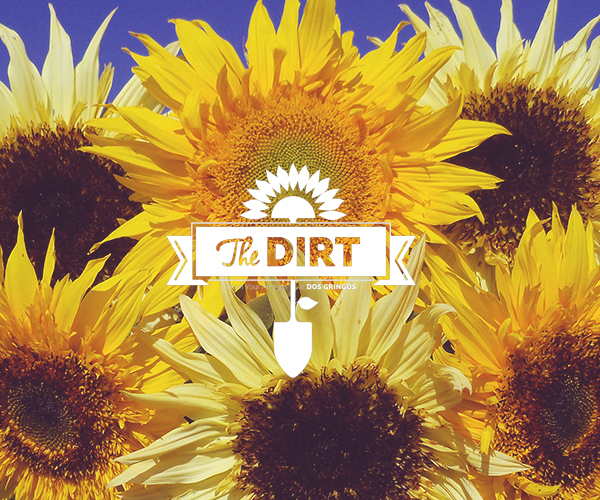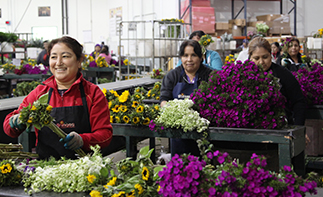
Flowers Make You Happy!
If you saw a headline like this one in your local newspaper, you might first think it’s some type of info-tisement
sponsored by the floral industry. You’d probably be right, too. So what is this headline doing in Cognitive Daily?
We’ve found a study to support the notion that flowers actually induce real positive emotions.
Was it paid for by the floral industry? Yes, it was. Does that mean it’s bad research? Not necessarily.
A team led by Jeannette Haviliand-Jones has conducted an impressive set of three experiments,
each of which contributes to the idea that giving someone flowers
improves their mood, not just at the moment of delivery, but long afterwards.
In the first experiment, 147 women were recruited using ads in supermarkets to participate in a study
about “normal daily moods.” In exchange, they would be given one of 10 possible gifts,
but they weren’t told which gift they’d receive. The women were all called on the phone and given a
questionnaire to assess their mood and overall life satisfaction. Then, 10 days later, two experimenters
showed up at their door at a scheduled time to deliver the gift.
One third of the women received flowers, one third got a fruit basket, and one third got a candle.
These gifts had been pre-selected by a group of volunteers to have equivalent appeal,
and they all had equivalent monetary value. Chocolate wasn’t chosen as a gift because
some raters found it unappealing because of the danger of gaining weight.
One experimenter delivered the gift, and another recorded the reaction of the women as they received it.
The gifts were delivered in such a way that the recorder couldn’t initially see what gift was delivered.
While the women smiled when receiving nearly all of the gifts, significantly more authentic
Duchenne smiles were observed in women receiving flowers than the other gifts.
While 100 percent of those receiving flowers smiled, only 90 percent of those receiving fruit
and 77 percent of candle-receivers smiled authentically when seeing their gifts.
Three days later, the women were interviewed on the telephone again, and only the flower-receivers
scored significantly higher on the mood questionnaire than they had in the first interview.
In a second experiment, an experimenter stood in an elevator and gave whoever
entered either a flower, a pen, or nothing. When nothing was given, half the time the experimenter was holding
the basket of flowers, and half the time he was not. They also attempted to initiate conversation.
Sixty men and sixty-two women entered, and a second experimenter recorded four different observations:
whether the person smiled, how close they stood to the experimenter, whether they initiated conversation,
and whether they were looking at the experimenter.
These four observations were combined into a single score that ranged from 0 to 9.
Here are the results:
Both men and women scored significantly higher in social behavior when they were given flowers
compared to pens or no gift at all. Interestingly, the lowest scores were received when flowers
were seen but not given — so it’s not enough just to see flowers,
it’s the act of being given flowers that appears to affect mood and social behavior.
In a final study, women in retirement homes and assisted living communities were given 0, 1,
or 2 bouquets of flowers over a two-week period. They were interviewed at the beginning
and end of the study to assess mood. Again, women who received flowers had significantly more positive
moods at the end of the study than at the beginning. Women who received two bouquets were significantly
less depressed than those receiving just one, who were again significantly less depressed than those
receiving no bouquets (these women were given bouquets too — after the final mood measure was taken).
So the floral industry seems to have made a good case for giving flowers — in all three studies,
flowers resulted in the most positive results compared to other gifts. Next the floral industry may
want to sponsor work to determine if flowers make up for social gaffes like forgetting a birthday or anniversary!
Haviland-Jones, J., Rosario, H.H., Wilson, P., McGuire, T.R. (2005).
An environmental approach to positive emotion: Flowers. Evolutionary Psychology, 3, 104-132.


